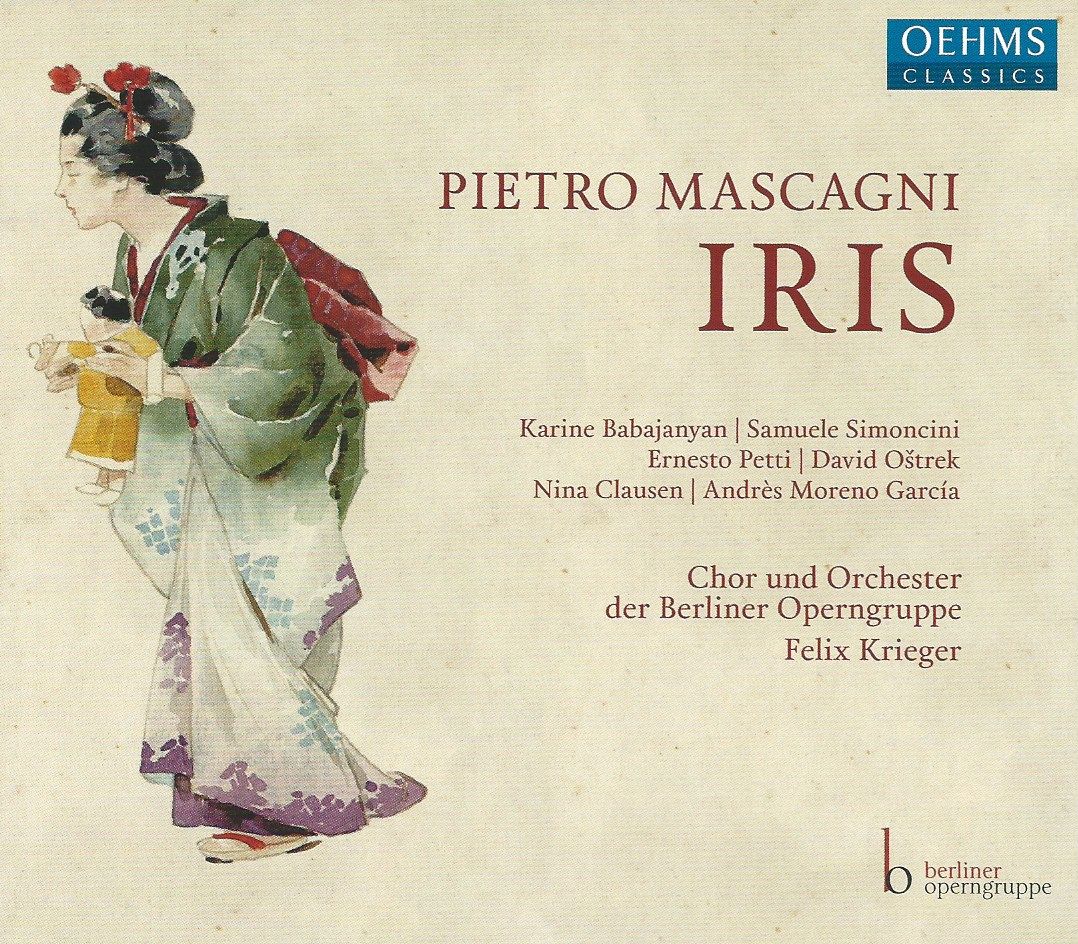Mascagni's Iris: a verismo gem
It is impossible not to be pulled into Mascagni's world ...

Predating Puccini's Madama Butterfly, Pietro Mascagni's Iris, first performed in Rome in November 1898, is an opera with an Oriental subject and was actually the first of the Italian Japanese operas (Butterfly was premiered in 1904). It is a glorious score, as performances at Opera Holland Park in June 2016 confirmed (my review of that occasion is here). Operas with Oriental subjects had been the vogue elsewhere, however: one need only think of The Mikado, Saint-Saëns' La princesse jaune and André Messager's Madame Chrysanthème. All this sprang from a fascination for japonisme following the official close of Japan's isolation in 1868; a Japanese pavilion at the World Fair in Paris the previous year had piqued interest.

The librettist for Mascagni's opera is Luigi Illica, who was a co-librettist for Butterfly. Iris has a touching subject: a sheltered girl (the titular heroine) is taken to a puppet show that has been put on for one purpose alone: to abduct her. She, in turn, becomes a human puppet for her abductors, and in the second act finds herself captive in Kyoto's red light district. After an unsuccessful seduction by the character Osaka, the character Kyoto exhibits Iris for all to see. It is now that Iris' father joins the crowd; no joyful reunion, however, as he instantly denounces her. Iris attempts suicide at the very close of the second act. She is found in the brief final act (more of a postlude - the acts are hardly equal in duration) by rag-pickers. She dies, reassured by that archetypal symbol of Japan, the rising sun.
The opera is bookended by two glorious choruses, in fact. First, Act one's "Son io!":
... and here's the finale:
Operas zoom in and out of favour, as do arias and indeed composers. It is good that we have Maria Farneti to sing "Io pingo". Farneti was born in 1877 and died in 1955 (her debut was in 1899 in Turin as Desdemona Otello), and although all of her recordings were made after her retirement from the stage, she affords us a direct link to Mascagni's time. This is her Columbia recording, 1931, Milan (which also turns up on Volume Three of the Testament reissue of The EMI Record of Singing):
... and here is our Iris of today's recording, Karine Babajanyan, in the same aria. Both Farneti and Babanyan feel totally at home:
The opera focuses on the titular heroine, although Osaka is given some wonderful music (despite his unpleasant character!). His first act seduction aria, sung in the guise of "Jor," "Apri la tua fenestra," is surely a nod to Mozart's "Dei vieni alla finestra" from Don Giovanni,. Here's tenor Samuele Simoncini, on fine form:
Here's the promotional trailer for the Berlin Opera Group/Oehms Classic release we're looking at today:
Don't expect the same sort of blatant pentatonic Orientalism that Puccini indulged in in Butterfly; Mascagni instead captures the atmosphere more subtly through gossamer textures and sinuous melodic lines flavoured by (but not defined by) pentatonicism and, in the final act particularly, the whole-tone scale.
It is impossible not to be pulled into Mascagni's world; this recent release (March 19, 2021) also asks the urgent question of why isn't this staged more often? We've already seen previously how Opera Rara offers up little known gems when we looked at Donizetti's Il Paria and L'Ange di Nisida, and Puccini's Le Willis. Oehms Classics have done the World a similar favour with this Mascagni Iris, a live performance in stunningly present yet rich sound from the Konzerthaus, Berlin on February 18, 2020. The box includes full documentation, including essays and full libretto with translation. Not to mention some beautiful plates, of which the Mount Fuji shown at the top of this article is one.
